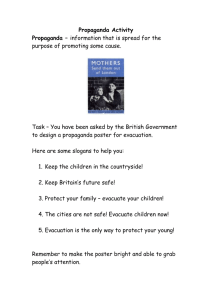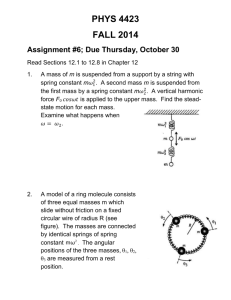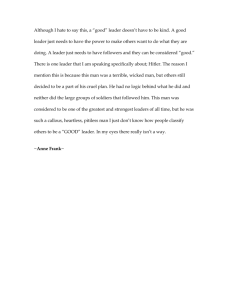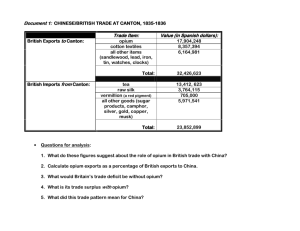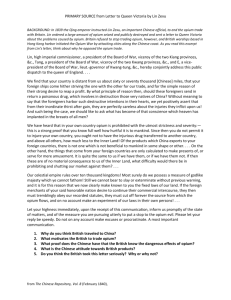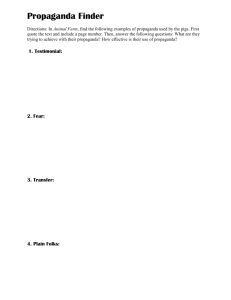Choice Document 1
advertisement
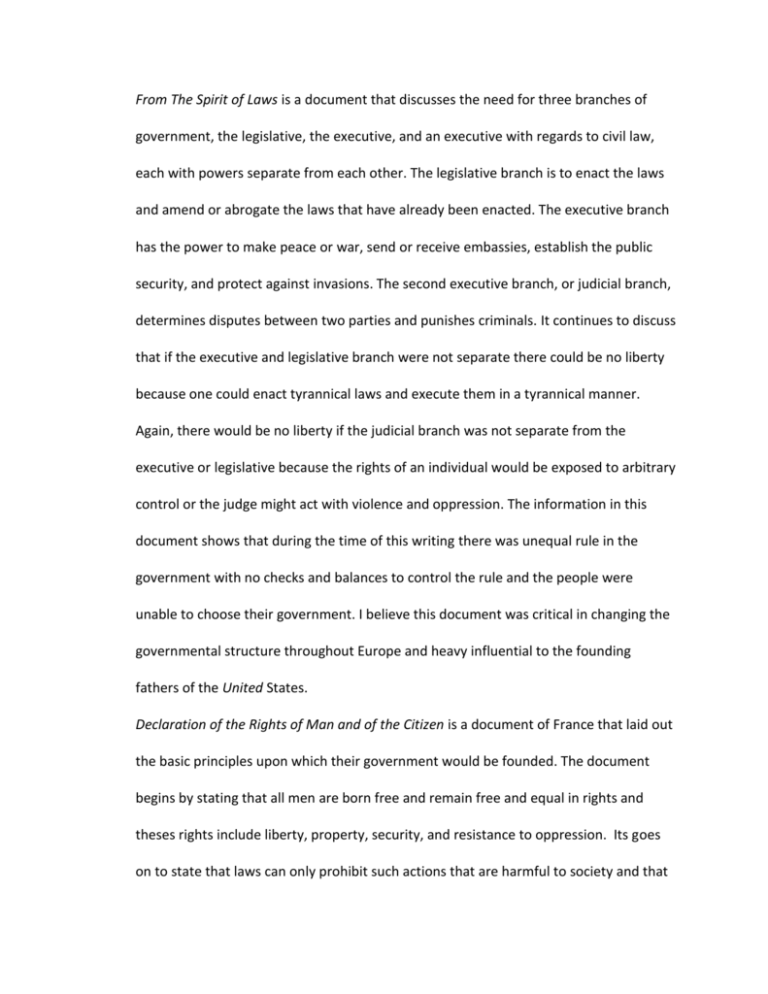
From The Spirit of Laws is a document that discusses the need for three branches of government, the legislative, the executive, and an executive with regards to civil law, each with powers separate from each other. The legislative branch is to enact the laws and amend or abrogate the laws that have already been enacted. The executive branch has the power to make peace or war, send or receive embassies, establish the public security, and protect against invasions. The second executive branch, or judicial branch, determines disputes between two parties and punishes criminals. It continues to discuss that if the executive and legislative branch were not separate there could be no liberty because one could enact tyrannical laws and execute them in a tyrannical manner. Again, there would be no liberty if the judicial branch was not separate from the executive or legislative because the rights of an individual would be exposed to arbitrary control or the judge might act with violence and oppression. The information in this document shows that during the time of this writing there was unequal rule in the government with no checks and balances to control the rule and the people were unable to choose their government. I believe this document was critical in changing the governmental structure throughout Europe and heavy influential to the founding fathers of the United States. Declaration of the Rights of Man and of the Citizen is a document of France that laid out the basic principles upon which their government would be founded. The document begins by stating that all men are born free and remain free and equal in rights and theses rights include liberty, property, security, and resistance to oppression. Its goes on to state that laws can only prohibit such actions that are harmful to society and that they are expressions of the general will, meaning every citizen has a right to participate in its formation. It also expresses the idea of innocent until proven guilty and that no person should be falsely imprisoned. This document shows the political frustration during the time and the need for reform in order to have a basic foundation of laws for an equal society. I believe this document was a great step in creating an equal society in 18th century France. The Conditions of the Working Class in England in 1844 is a firsthand account of conditions in Manchester’s working class neighborhoods. It discusses how unclean the conditions were including pools of urine and excrement laying in the narrow streets and how the houses were crammed together almost one on top of the other. The houses that the workers lived in were referred to a “pig pens.” Factories would dump their waste into the bank creating a black, foul smelling stream of debris. This document shows the complete separation of power between the rich and the poor during this time and the horrible living conditions the poor, working class had to endure. I believe this document was an eye opener to the living conditions of the working class. Inquiry into the Sanitary Condition of the Poor is a document that analyzed the living conditions of the poor. It begins by describing the many diseases among the laboring classes are caused by atmospheric impurities caused by decomposing filth and overcrowded dwellings and that cleanliness is obstructed by defective supplies of water. It states that the annual loss of life from filth and bad ventilation are greater than the loss from death in any wars which England has fought in during the time. It goes on to describe that there are thousands of cases of widowhood and even more of orphaned children. This again shows the lifestyle separation between the wealthy class and the poor, working class. I believe this document is a shocking description of the horrible conditions the poor had to endure. Commissioner Lin Zexu’s letter to Queen Victoria was an attempt of China to try to suppress the opium trade of Great Britain. In the beginning of the letter the commissioner brings up the fact that opium is illegal in Britain which is proof that the queen knows how harmful it is to mankind. The letter describes the amount of exports of China to Britain including tea, cinnamon, ginger, and raw silk, all of which are necessities of British life and the fact that Britain’s exports to China only serve as mere amusements. Commissioner Zexu goes on to order the queen to not only stop all trade of opium, but to have all of England’s colonies where the opium is grown, including Bombay, Bengal, and Malwa, to also cease growing the drug. This letter shows the strained tensions and cultural differences between the West and Far East. I believe this letter established China as an independent nation capable of providing for its own people and made a statement to the powerful countries to the west. Mein Kampf is the autobiography of Adolf Hitler in which he states Germany lost World War I because of a failed propaganda campaign. Hitler states that the great masses are not receptive to anything that is weak and in order to make effective propaganda you must understand the masses emotional ideas. He goes on to say that the masses attention is limited and intelligence is small but their power to forget is enormous. Propaganda must be limited to very few points and you must keep repeating these slogans until every last person of the public understands the slogan. The key is to convince the masses and ideas are to be repeated thousands of times until the masses finally remembers them. This document shows how weak and desperate the times were in Germany and how the country yearned for some kind of leadership. I believe this autobiography was an insight into the grim future of Germany under the crazed leadership of Hitler. Aaron Smith Chapter 17: The Spirit of Laws: On Separation of Governmental Powers 1748 Chapter 20: Declaration of the Rights of Man and of the Citizen 1789 Chapter 21: The Condition of the Working Class in England in 1844 Chapter 23: Inquiry into the Sanitary Condition of the Poor 1842 Chapter 25: Commissioner Lin Zexu Letter to Queen Victoria 1839 Chapter 28: Mein Kampf: The Art of Propaganda 1924
